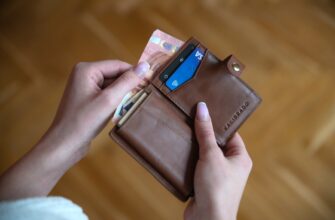Why Securing Your Crypto Wallet with a Password Matters
Cryptocurrency wallets are prime targets for hackers due to their direct access to digital assets. A password adds a critical layer of protection, ensuring only authorized users can access funds. Without one, your wallet is vulnerable to theft, phishing, and malware attacks. This tutorial teaches you how to fortify your wallet with a strong password and additional security measures.
Step 1: Choose a Reliable Crypto Wallet
Not all wallets offer robust password features. Prioritize these options:
- Hardware Wallets (e.g., Ledger, Trezor): Offline storage + PIN/password protection.
- Software Wallets (e.g., Exodus, Electrum): Built-in encryption and password options.
- Mobile Wallets (e.g., Trust Wallet): Biometric login + password support.
Step 2: Create an Uncrackable Password
Follow these rules for maximum security:
- Use 12+ characters with uppercase, lowercase, numbers, and symbols (e.g.,
7R$qL9#vE@2xP) - Avoid personal information (birthdays, pet names)
- Never reuse passwords from other accounts
- Use a password manager like Bitwarden or 1Password
Step 3: Enable Two-Factor Authentication (2FA)
Add an extra shield with these methods:
- Google Authenticator or Authy for time-based codes
- Hardware security keys like YubiKey
- SMS-based 2FA (less secure but better than nothing)
Step 4: Backup Your Wallet Securely
- Write recovery seed phrases on fireproof/waterproof paper
- Store backups in multiple locations (safe deposit box, home safe)
- Encrypt digital backups using VeraCrypt
Step 5: Regular Security Maintenance
- Update wallet software monthly
- Scan devices for malware weekly
- Change passwords every 3-6 months
FAQ: Secure Crypto Wallet Passwords
Q: Can I recover my wallet if I forget the password?
A: No – passwords aren’t stored by wallets. You’ll need your recovery seed phrase.
Q: Is a password enough to protect my crypto?
A: Combine it with 2FA, biometrics, and cold storage for full security.
Q: How do I secure a MetaMask wallet?
A: Set a strong password, enable 2FA for linked exchanges, and use a hardware wallet integration.
Q: Are password managers safe for crypto?
A: Yes, if you use open-source, audited tools with zero-knowledge encryption.
Q: What if my device gets stolen?
A: Remote wipe features (like Find My iPhone) + password protection prevent unauthorized access.








